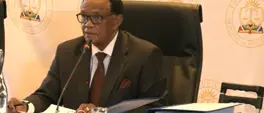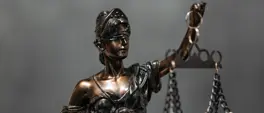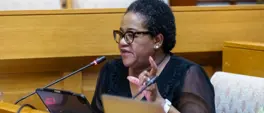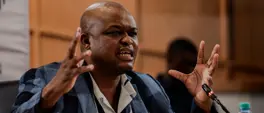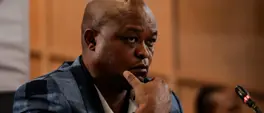Fears of new political crisis grip France
AFP
26 August 2025 | 8:57France's embattled prime minister stunned the country on Monday, announcing he had asked President Emmanuel Macron to convene an extraordinary session of parliament on 8 September.

FILE: French Prime Minister Francois Bayrou delivers a general policy statement to MPs at the National Assembly in Paris on 14 January 2025. Picture: AFP
PARIS - Fears of a new political crisis swept through France on Tuesday as the minority government of Francois Bayrou appeared likely to be ousted in a crucial confidence vote next month.
France's embattled prime minister stunned the country on Monday, announcing he had asked President Emmanuel Macron to convene an extraordinary session of parliament on 8 September.
Bayrou needs parliamentary backing for his battle against soaring public debt but main opposition parties, from the far-right to the hard-left, said they would not back Bayrou's proposed cuts.
The announcement came as calls mounted in France to stage protests on 10 September and far-right leader Marine Le Pen said parliament should be dissolved.
On Tuesday, Jean-Luc Melenchon, head of the far-left France Unbowed party, upped the pressure, saying that Macron must resign if Bayrou, 74, loses the vote.
"Macron is chaos," Melenchon told broadcaster France Inter, adding that he would propose a motion of no confidence against the head of state in parliament.
"The issue is Mr Macron. He must go."
Political competition is intensifying in France ahead of the crucial presidential election in 2027 when Macron's second term is set to end.
France's 47-year-old president has repeatedly faced calls to resign since dissolving parliament last year, plunging the country into crisis.
But he has insisted that he will stay on until the end of his term and has also said he wants to avoid dissolving parliament again.
Were Bayrou to be rejected by parliament, it would leave Macron seeking his seventh prime minister and cast a heavy shadow over the remaining two years of his presidential mandate.
Bayrou's predecessor, Michel Barnier, was ousted just after three months on the job. In December, National Rally teamed up with a left-wing bloc to topple his government over the 2026 budget.
Government ministers called for a compromise but some also said all options were on the table.
"It is better to be able to find a compromise with the political groups in the Assembly," Justice Minister Gerald Darmanin told broadcaster France 2.
"Dissolution is costly for France, of course but we must not rule out this possibility."
Economy Minister Eric Lombard vowed to "fight" to ensure the government wins the vote on 8 September.
"Our responsibility is to reach an agreement because the country needs a budget,’ he said.
'HARAKIRI'
The Paris stock exchange on Tuesday reflected the political malaise, falling about two percent while shares in banks BNP Paribas and Societe Generale plunged more than six percent.
Investors' waning confidence in France's debt pushed the yield on its 10-year sovereign bond higher.
Le Monde said defeat for Bayrou, who wants to save about 44 billion euros ($51 billion) with measures including holiday reductions, "seems almost certain".
Mujtaba Rahman, Europe director at risk analysis firm Eurasia Group, said the prime minister would most likely be unseated.
"He sought to shock the French public and political system into facing the gravity of the country's debt crisis but he may have changed little but the date of his own execution," he told AFP.
Mathieu Gallard, research director at France's Ipsos institute, suggested that Bayrou had essentially opted to fall on his own sword by requesting a vote of confidence in a bitterly divided parliament.
"This is like committing harakiri," he said.
In mid-July, Bayrou presented 2026 budget proposals, adding he wanted to reduce the number of public holidays in France as part of a bid to tackle what he called the "curse" of the country's debt.
The measures have proved deeply unpopular.
After years of overspending, France is on notice to control its public deficit and cut its sprawling debt, as required under EU rules.
The far-right said on Monday they would not back Bayrou's government.
"Only dissolution will now allow the French people to choose their destiny," Le Pen said on X.
Green leader Marine Tondelier said Bayrou's announcement was "a de facto resignation".
Get the whole picture 💡
Take a look at the topic timeline for all related articles.



